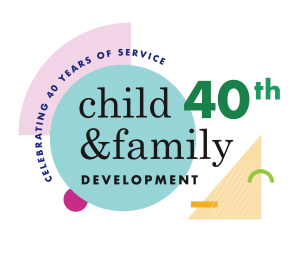Written by: Lindsey Anuzis, MA, LCMHCA, NCC, RBT ~ Child and Family Development
Adapted from The Smarty Podcast with guests, Dr. Gretchen Hunter, and Chelle Stoneburg, BCBA
What exactly is Autism? Autism is a neurodevelopmental disorder that often presents itself in early childhood, typically around 12-24 months (American Psychiatric Association, 2013, p. 55), but may be seen earlier and even later depending on severity of symptoms. Autism Spectrum Disorder encompasses a broad range of symptoms which can include restricted or repetitive behaviors, and challenges with social and emotional skills, and language development.
The Centers for Disease Control and Prevention (2020), reports that 1 in 54 children have been diagnosed with Autism Spectrum Disorder (ASD), and that boys are more than 4 times more likely to be impacted than girls.
Evaluations for Autism Spectrum Disorder can occur at any point throughout a person’s life, but occur most frequently during early development as a result of missed milestones. While the following information is not intended to diagnose or be used as a substitute for medical advice; it will provide you with some insight into when an evaluation may be warranted.
Critical Impacts of ASD and Areas for Awareness:
1) Social-Communication
– Social communication includes verbal (language) and non-verbal (gestures) communication. Delays in communication, in turn, lead to social delays like difficulty forming friendships, playing, or expressing feelings.
– Early social concerns include: lack of gestures, difficulty with eye contact, intense focus on objects instead of people, limited facial expressions, and reduced response to name, low play skills, and difficulty establishing friendships.
– Early language related concerns include: delayed babbling or talking, repeating words or phrases out of context (called echolalia), and inability to imitate words or sounds.
2) Restricted and Repetitive Behaviors
– Restricted behavior includes highly intense interests in typical childhood topics (ex. cars, animals) or abnormal interest in unusual topics (ex. vacuums, locks, or elevators).
– Repetitive behavior includes engaging in the same behavior over and over again (such as spinning or rocking) or insisting on routines or order.
– Typically developing children may display some of this behavior, but children with ASD display these behaviors at a level that inhibits social interactions, causes meltdowns/tantrums, or leads to difficulty transitioning away from these activities.
– Children with ASD may be interested in specific parts of toys and engage in play actions over and over again, such as spinning the wheels of an upside-down car or pressing a single button repetitively.
– They may also display unusual motor movements, such as hand flapping, spinning, toe walking.
– Differing sensory experiences may also be a part of these restricted or repetitive behaviors. This includes extreme picky eating aversion to certain textures, decreased sensitivity to pain, and increased sensitivity to noises or lights.
So, what if your child has been exhibiting some of these traits and tendencies? The best piece of advice we here at Child and Family can give you is to seek out an early evaluation! Early evaluations, and early intervention for that matter are critically important to the development of your child, as they can provide insight, and resources. Research indicates that early diagnosis of ASD leads to better developmental outcomes.
Perhaps you’re not quite sure if your child meets these descriptors, if that is the case, bring up your concerns to your pediatrician and request an Autism screening at each of your well-child appointments. Having an accurate early diagnosis can help you to navigate which treatments and educational accommodations would be most impactful so that your child can achieve their full potential.
Listen to our recent Smarty Podcast: The Early Signs of Autism Spectrum Disorder where we chatted with Gretchen Hunter and Chelle Stoneburg of C&FD – it’s a goodie!
Lindsey Anuzis, MA, LCMHCA, NCC, RBT is a Licensed Clinical Mental Health Counselor Associate as well as a Registered Behavior Technician at the Midtown and Pineville locations of Child & Family Development. Lindsey obtained her Bachelor of Science in Psychology from High Point University in High Point, NC and her Master of Arts in Clinical Mental Health Counseling from Wake Forest University in Winston Salem, NC. She provides ongoing therapy services to preschoolers through young adults to address concerns related to mood, behavior, and social skills. Her areas of clinical interest include stress and coping skills, life transitions, grief and loss, self-esteem, identity concerns, bullying and relationship issues, wellness counseling with a mind body emphasis and trauma. Contact us to schedule an intake appointment with Lindsey today.
Child & Family Development

Locations:
Mitdtown:
4012 Park Road, Suite 200
Charlotte, NC 28209
704.332.4834
Pineville:
11940 Carolina Place Parkway, Suite 200
Charlotte, NC 28134
704.541.9080
Website | Facebook | Instagram | Twitter




